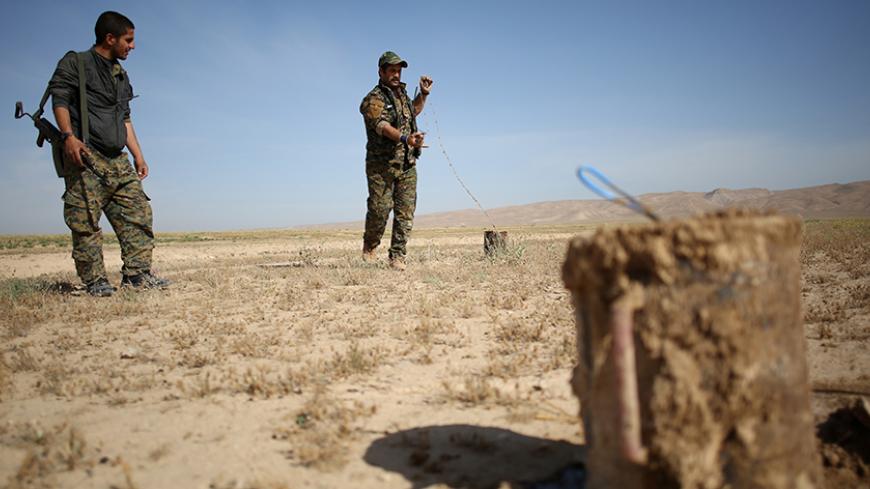In armed conflicts, each new weapon or technique introduced typically elicits a countermeasure or new move by the opposing side. Such action-reaction cycles can sometimes escalate clashes to levels both sides come to regret. This is the current situation involving Ankara and the Kurdistan Workers Party (PKK) and between the Islamic State (IS) and the international coalition confronting it.
As noted Sept. 12 in Al-Monitor, in “Ankara hardening anti-PKK strategy,” the Turkish government, confident in its declaration of a state of emergency and experience gained in its struggle against the Gulen movement, has settled on a strategy of total liquidation of the PKK to the exclusion of attempts at deterrence. In this regard, Ankara last month introduced on the battlefield the Turkish-made medium-altitude, long-endurance Bayraktar TB2 armed unmanned aerial vehicle (UAV). The drone's manufacturer, Baykar Makina, is owned by President Recep Tayyip Erdogan’s son-in-law Selcuk Bayraktar.



